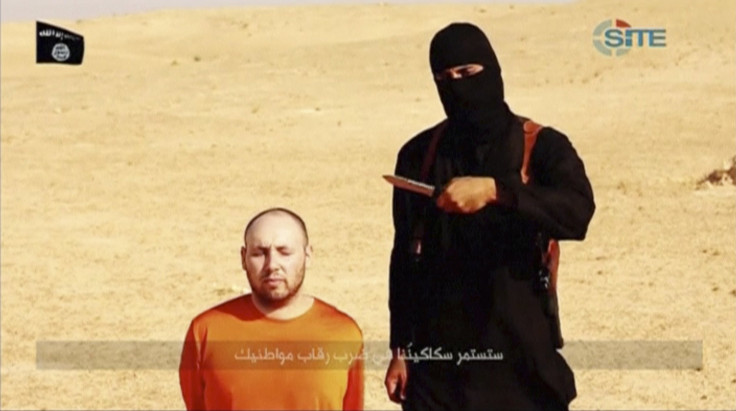Jihadi John Drone Attack Criticized By British Politicians And Family Of Those Beheaded

In the wake of a U.S. drone strike that allegedly killed an Islamic State group executioner Thursday evening, questions have been raised in the U.K. by politicians and the family of those slain by Mohammed Emwazi about allowing the U.S. military to kill a British citizen. They said the man -- also known as Jihadi John -- could have been sent to trial instead.
“It appears Mohammed Emwazi has been held to account for his callous and brutal crimes,” said Jeremy Corbyn, leader of the Labour Party, in press release Friday. “However, it would have been far better for us all if he had been held to account in a court of law. These events only underline the necessity of accelerating international efforts, under the auspices of the U.N., to bring an end to the Syrian conflict as part of a comprehensive regional settlement.”
The U.S. and the U.K. had been targeting Emwazi since he first appeared in a YouTube video in August 2014 where he beheaded U.S. journalist James Foley. Emwazi is then believed to have killed another six high-profile hostages and Syrian soldiers.
Mohammed Emwazi should have gone to court, says Corbyn https://t.co/zrcm3DmMhl
— Guardian news (@guardiannews) November 13, 2015Emwazi was reported to have been killed by a reaper drone armed with hellfire rockets while driving in a car with a passenger somewhere in Syria Thursday evening, according to Col. Steve Warren, spokesman for the U.S. military operation against ISIS. He said the death would "take time to confirm."
Yasmin Qureshi, another Labour Party member of Parliament, complained to the Guardian Friday about how U.S. and U.K. officials dealt with Emwazi, pointing out that the late, former Serbian leader Slobodan Milošević committed genocide and killed thousands of people but was properly arrested and tried.
“That is what we should do with all these people. That is what the victims’ families ask for,” she said. “This new trend of celebrating and getting excited about extrajudicial killings of individuals, which are becoming commonplace, flies in the face of our principles of the rule of law.”
Reg Henning, brother of British aid worker Alan Henning, who was allegedly killed by Emwazi in early Oct. 2014, also told the Guardian that he was happy to hear that Emwazi had been killed but "would have preferred him to have been brought to justice.” But Henning warned that a high-profile trial might have given ISIS additional exposure and helped it recruit further people to its military operation in Syria and Iraq.
While U.K. Prime Minister David Cameron said during a press conference Friday that his government sanctioned the drone strike on Emwazi, calling the death “an act of self-defense” and “the right thing to do,” civil liberty advocates said that any official British attempt to kill Emwazi was possibly unlawful, according to a New York Times report.
Questions over the lawfulness of the strike against Emwazi are similar to those the came about after the Obama administration’s decision to target and kill Anwar al-Awlaki, an American-born cleric and a United States citizen, in Yemen in 2011. The American Civil Liberties Union called the strike a "dangerous precedent" that violated both U.S. and international law, according to a statement released at the time.
At a news conference in Tunis, Secretary of State John Kerry said that the airstrike should serve as a warning. “We are still assessing the results of this strike, but the terrorists associated with Daesh need to know this: Your days are numbered, and you will be defeated,” Mr. Kerry said, using an Arabic acronym for the Islamic State group. “There is no future, no path forward for Daesh, which does not lead ultimately to its elimination, to its destruction.”
© Copyright IBTimes 2025. All rights reserved.





















